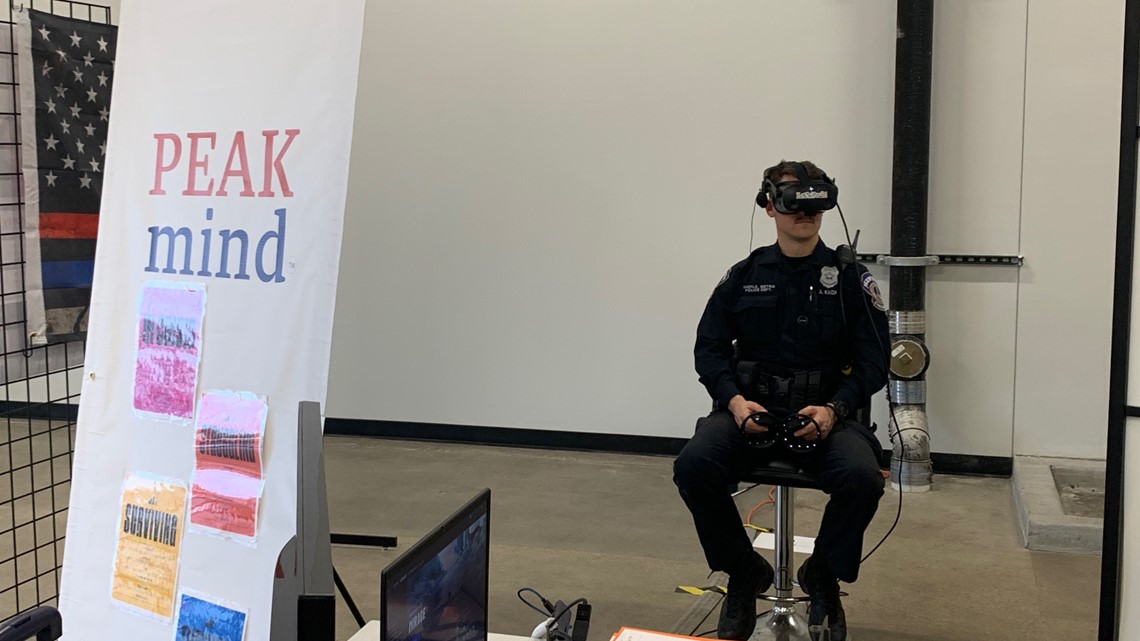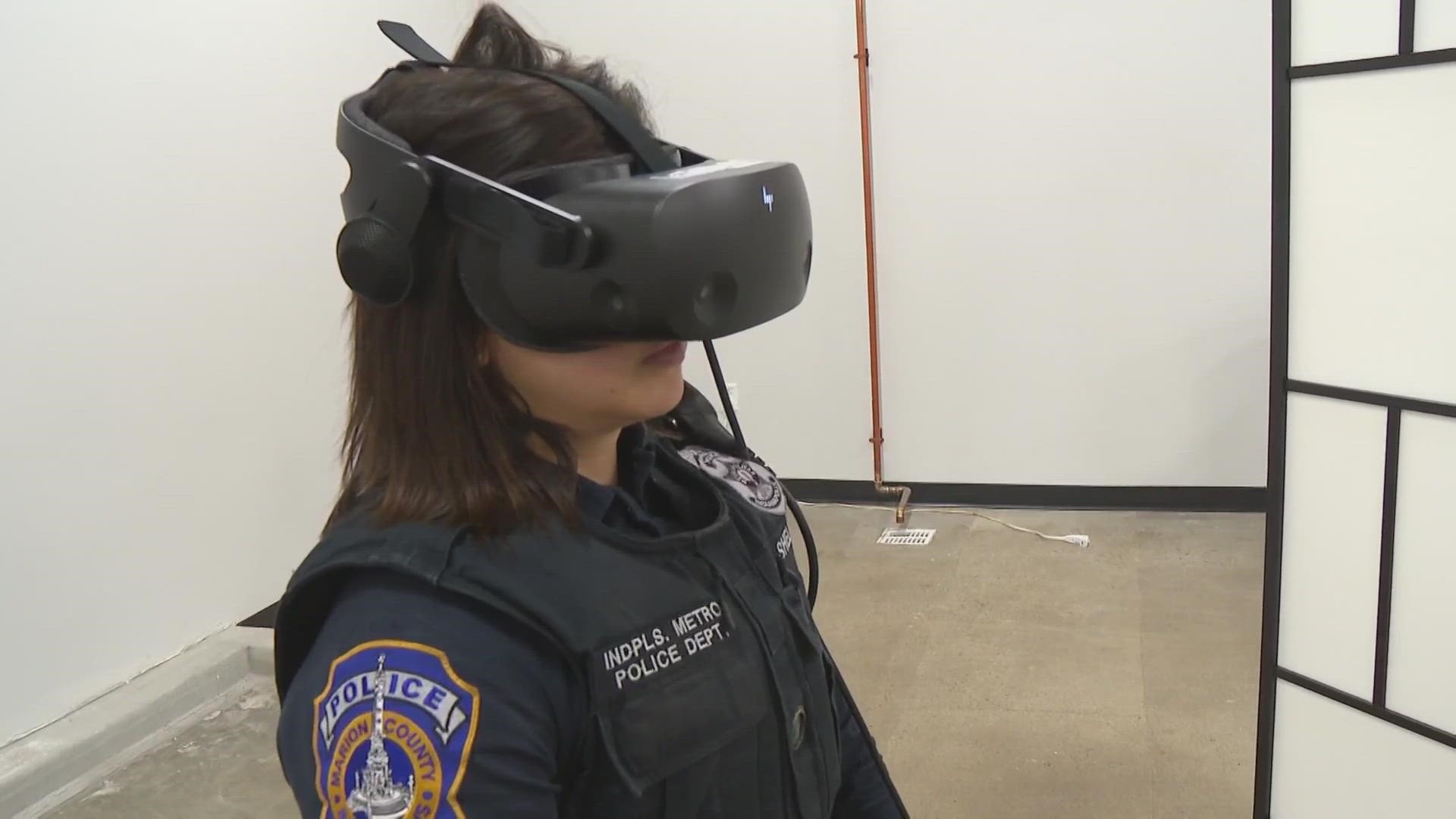INDIANAPOLIS — All of us experience stress at work, but that's especially true in law enforcement, where officers are exposed to trauma daily.
Now, an Indy-based tech company that recently received an Indiana Innovation grant, is using virtual reality to keep police in Indianapolis emotionally healthy.
It's a convergence of science and public safety, helping IMPD officers reduce stress on the job.
For 15 minutes before going on patrol, IMPD officer Alex Knop goes on the water. He experienced a virtual reality kayak trip, for science-based stress relief.
The AI-powered intervention is happening in the labs of Peak Mind.
Dr. Alicia Mckoy developed the technology that earned a $48,000 grant from the state to expand.
It's extremely applicable, she says, for police officers.
"We're disrupting stress by intervening through meditative moments, mindfulness moments, fun interventions like virtual reality simulations that give you the healthy hormones. the dopamine, oxytocin, seratonin and endorphins, which are not necessarily the chemicals and the hormones that they get on shift," Mckoy explained.


Peak Mind uses science, software, virtual reality and biometric data to improve mental health in the workplace.
Fifty-five IMPD officers are currently active in the program.
Before and after their shifts, officers sign in, put on VR goggles, get a series of simulations and learn coping skills for crisises that come with the job.
"Then that can do a couple things. It can reduce the stress on our officers and if it reduces stress on our officers, that may impact how they interact with our community," said IMPD Lt. Shane Foley.
It lets them decompress before going home to family, too.
Biometric sensors are built into the hardware.
Those detect acute stress and the program finds ways to reduce it.
"It's tracking eye pupil dilation and pupil gaze," Mckoy pointed out, "and cognitive load is processing how hard is the simulation."


The high-tech science hopes to improve mental health for police who witness trauma every day.
Peak Mind plans to expand to other police departments across the state and the midwest.
Their technology is also being requested by hospitals, doctors and nurses who also have to thrive in high-stress environments.

